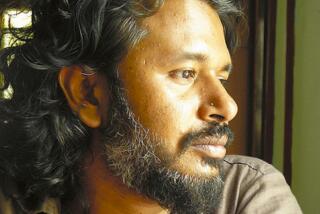A War-Weary Sri Lanka Waits : Government makes overture to rebels in bid to end long and savage civil conflict
- Share via
On the lovely, bloody island of Sri Lanka, the government has once again offered an olive branch to members of the minority Tamil community, which has spawned guerrillas who have waged war for more than a decade against the ruling Sinhalese people.
Alas, there is little reason for optimism that the guerrilla group known as the Liberation Tigers of Tamil Eelam will do the wise thing and accept the government’s offer. Still, President Chandrika Kumaratunga deserves credit for her persistence in trying to end a civil conflict in which as many as 40,000 have been killed over 13 years.
The rebels have battled for a separate homeland centered on the northern city of Jaffna. The Tigers seized Jaffna and held it for years, until government forces recaptured it last month. Virtually the entire civilian population fled the city, becoming refugees. Many guerrillas slipped away and remain a potent fighting force.
The northern and eastern regions of Sri Lanka are home to most of the country’s Tamils, an ethnic group that makes up less than 20% of the nation’s population. Most Sri Lankans are Sinhalese, and Kumaratunga has had to contend with many of these, her own people, who are upset at her willingness to negotiate with the Tamils. Another complicating factor is religion: Most Tamils are Hindu, most Sinhalese Buddhist.
Kumaratunga was elected president a little more than a year ago after a campaign in which she promised to try to settle the civil war through negotiations. A subsequent cease-fire was short-lived, as the rebels resumed deadly terrorist attacks that included wholesale massacres of Sinhalese and suicide bombings of military targets.
The president’s offer last week of increased autonomy for the northern and eastern regions is similar to one she proposed last summer. It deserves a better response from the guerrillas this time. The rebels were weakened by the loss of Jaffna. In addition, there is welcome evidence that increasing numbers of Tamil civilians, despite justifiable grievances, are fed up with the war ostensibly being waged on their behalf.
The island nation, off the coast of India and once known as Ceylon, formerly boasted a far higher standard of living than its South Asian neighbors. The civil war has cost the government dearly and frightened away foreign investors. The Tamils were badly mistreated by the Sinhalese for decades after Britain ended its colonial rule, but the rebels should lay down their arms and at least consider the government’s latest offer, which still requires approval by Parliament and a national referendum. The alternative is more bloodshed and devastation.
More to Read
Sign up for Essential California
The most important California stories and recommendations in your inbox every morning.
You may occasionally receive promotional content from the Los Angeles Times.












